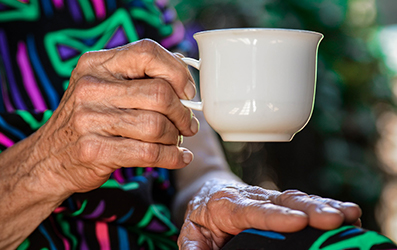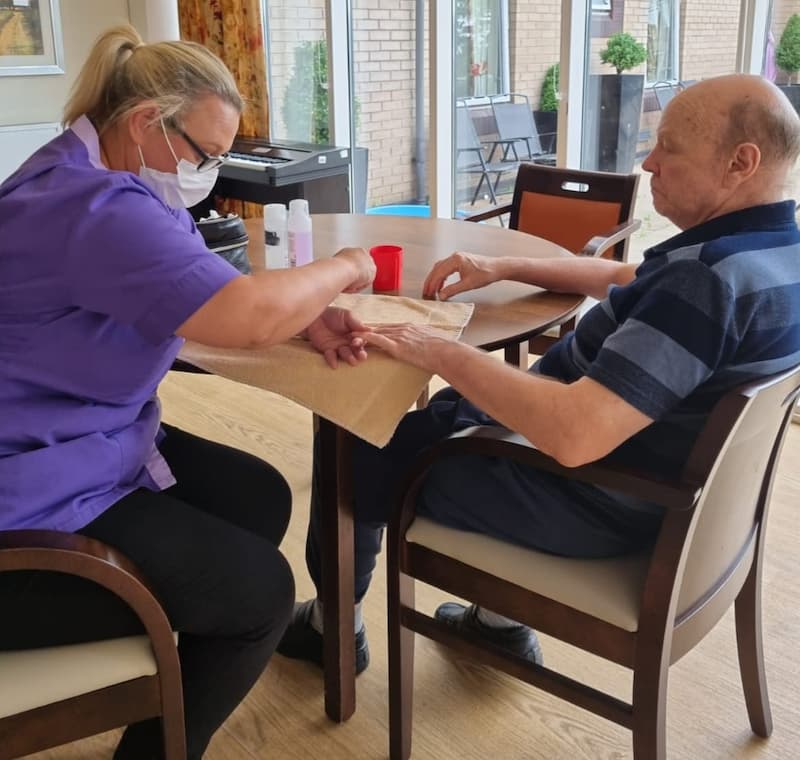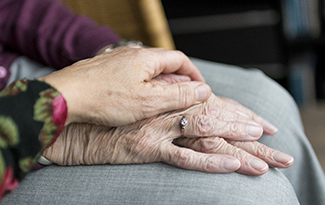When to Consider Residential Care

Many people consider Residential Care once alternative care options have been exhausted and/or are no longer suitable. When someone starts to find it difficult to live independently at home, making the decision to move to a Residential Care Home may be the right avenue to explore.
Residential Care offers so many wonderful benefits for an elderly person and can often be a desirable choice for many.
Examples of When it May be Time to Consider Residential Care:
- Daily Life Difficulties
When it becomes apparent that an individual is struggling with personal care or daily tasks, such as washing, going to the toilet, getting out of bed, cooking or keeping the home clean, it could be time to look at care options available and the types of care homes in your local area. - Safety Around the Home
When an elderly person is unable to live safely at home because of illness, frailty or a condition such as dementia, it may be the right choice to move into a care home, where health and safety are carefully considered for residents, staff and visitors. A care home is designed to offer its residents a safe and secure environment that makes mobility as easy as possible and therefore reduces the risk of falls. Care staff are always available to provide assistance to residents. - Quality of Life
If someone is experiencing loneliness and feelings of isolation at home, moving to a care home might provide much-needed social contact and a sense of community they desire. Residential Care naturally offers social opportunities through daily living, but enhances the opportunity to make friends and enjoy social activities by presenting its residents with an Events and Activities programme that includes Arts and Crafts, Games, Visits to the local Garden Centre, and much much more. - Carer Support
When you are a family member who is the main carer for a vulnerable person and take on all responsibilities, this can be overwhelming and you may find yourself in a position where you are no longer able to provide adequate support. Should you find yourself in this situation then Residential Care might be the best next step for everyone.
- Change in Medical Condition
People may experience a change in their medical condition and therefore a change in their needs. Living independently at home may not be appropriate and find they require a level of care that is only available in a care home where a team of health professionals can provide support on a 24-hour basis.
What is Residential Care?
Residential Care refers to general care and support that is provided by professional carers in a care home setting. This type of care is also often referred to as "personal care", “group living arrangement” and "assisted living", and is designed to provide help to individuals with everyday needs such as washing, dressing, medicine management, mobility assistance and so on in order for these personal tasks to feel less of a burden on someone.
At a residential care home, residents are able to treat the home as they would their own. Many care homes offer an abundance of services and facilities that are included in the weekly fee, for residents to spend their time doing the things that bring them joy with like-minded individuals. Residents can enjoy freshly cooked meals with zero housekeeping responsibilities for a better way of life.


When is the Right Time to Consider Residential Care?
Every person's decision to consider full-time residential care will be as unique as their situation. This decision may be sudden and follow an incident or situation such as an unexpected illness, fall or bereavement. Others, however, may experience a gradual increase in care needs and that decision will happen slowly over time or begin to research the option of a care home following a care needs assessment.
The final decision should be based on an individual’s needs and circumstances after extensive research and professional advice. Many individuals start their care home journey with residential care, with the goal of receiving a continuum of care in years to come. Should a person’s care needs change or progress, a care alternative may be considered such as dementia care or nursing care, ensuring family or friends are informed of any changes.
Residential Care for those living with Dementia
Receiving a dementia diagnosis does not automatically mean that someone will need to move into a care home. Putting future plans in place however, is a sensible step to take when Residential Care or Dementia Care is needed.
We recommend starting a conversation with a loved one regarding care in line with the progression of Dementia, as early as possible. Ideally, the loved one will have the mental capacity to be involved in the decision, and be able to put legal steps in place - such as a Power of Attorney - to ensure there is a trusted person to make important decisions on their behalf.
When the time comes, before choosing a care home we recommend you ensure the home is registered to provide specialist dementia care. Visit the home and speak to the staff regarding Dementia Care and make sure the care and the surroundings are suited to your and your loved ones' unique needs and preferences.
Residential Care at Deeside Care Home
Deeside is a luxury care home in Aberdeen, offering 24/7 residential care, nursing care, dementia care and respite care for older people. We are pleased to offer an array of in-house facilities for residents to make use of daily including fine dining, private gardens, hair salon & spa, cinema room and activities programme.
Deeside’s residential care option provides you with the opportunity to live your life the way you choose. We have specialised staff working 24 hours a day, 7 days a week to offer our residents with as much assistance as they require. It is important to us that each of our residents’ talents and skills are recognised, and we provide them with the encouragement they need to utilise them and be independent as much as they can whilst here with us at Deeside.
We also offer assisted living suites which are best suited for someone with low dependency needs. Assisted living provides an individual with the same all-inclusive luxuries that residential care provides, but where less care and support are required by our team. As and when care needs change, residential care can be considered the next best care alternative.
Should you have any questions regarding residential care or the signs of when residential care should be considered, our friendly staff at Deeside are ready and willing to help in any way they can. Call 01224 869816 or email info@deesidecare.com to speak to a member of the team.





